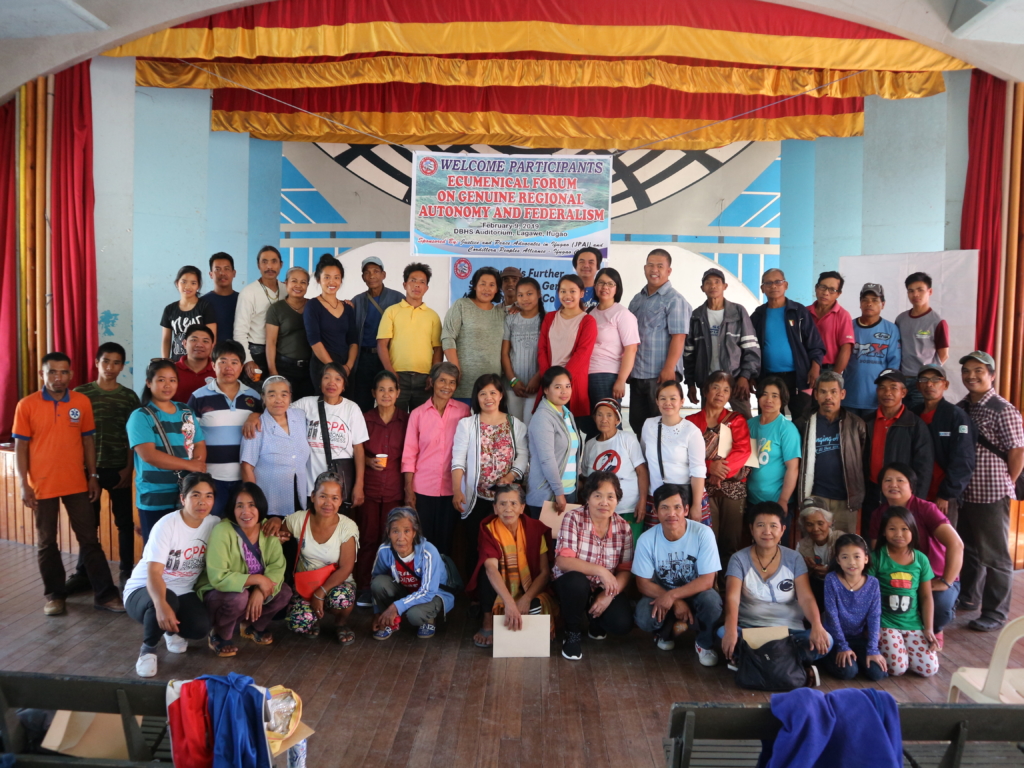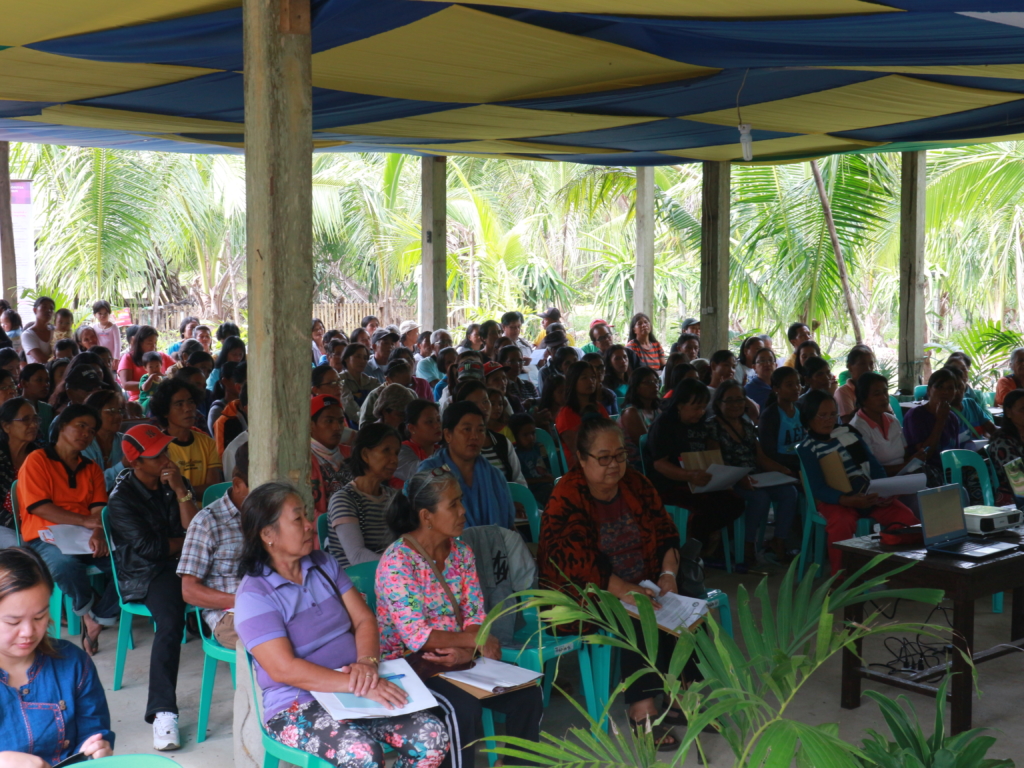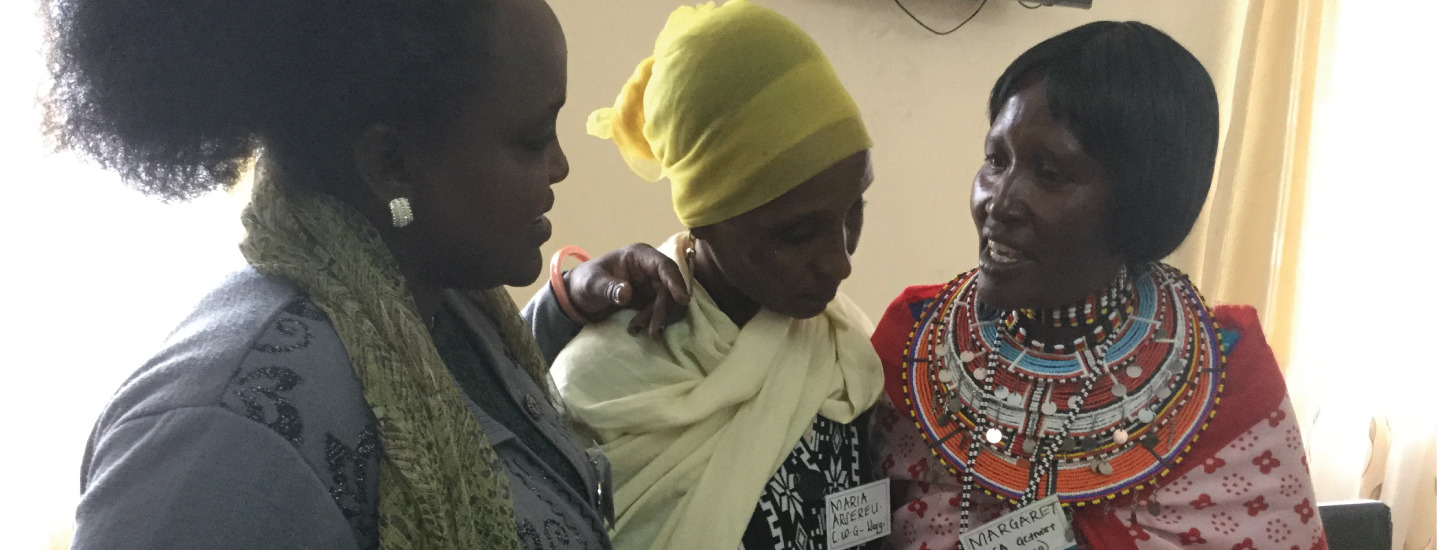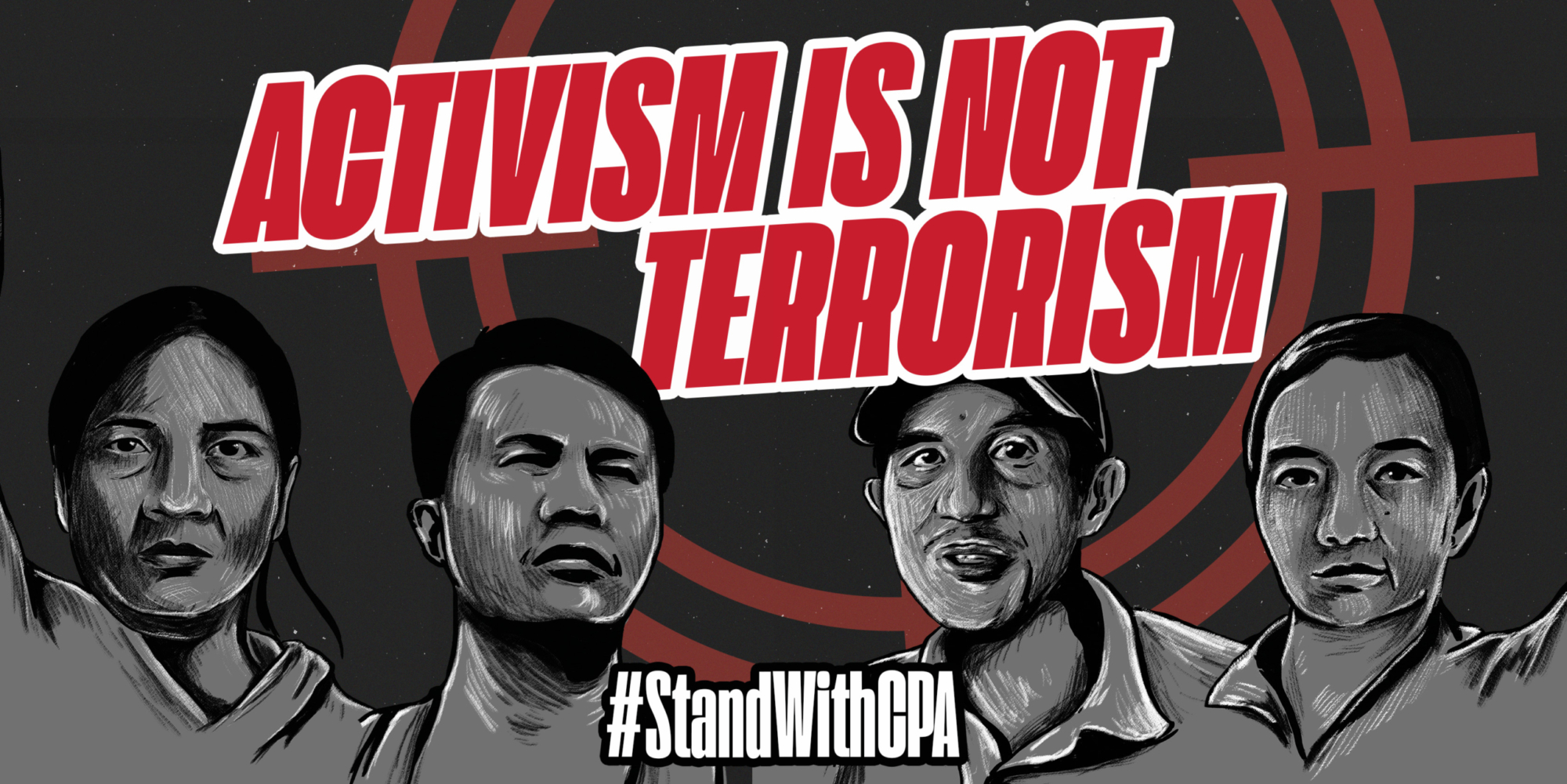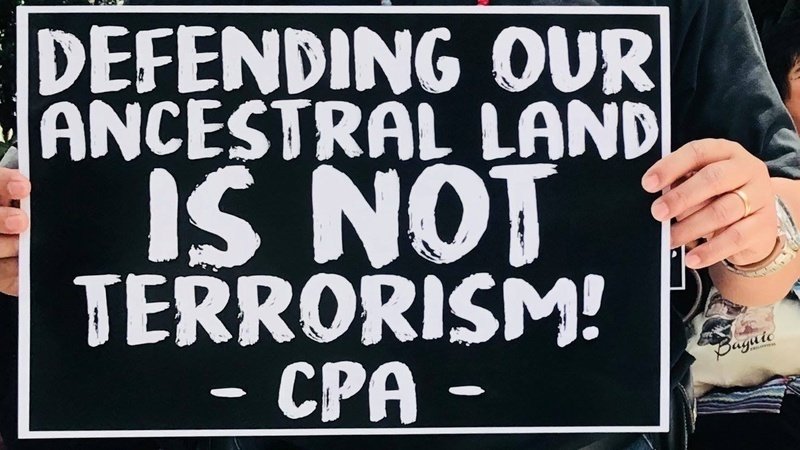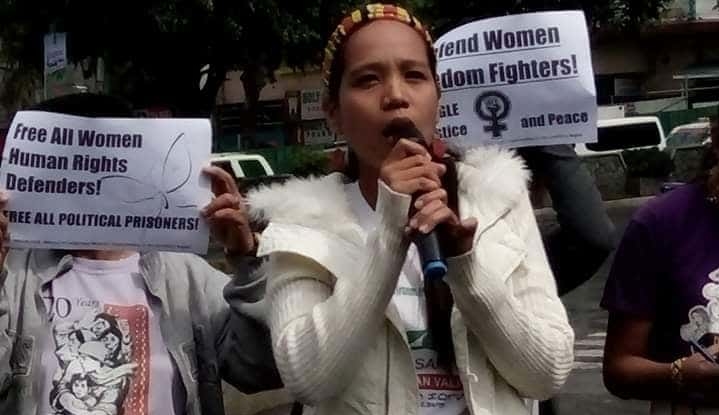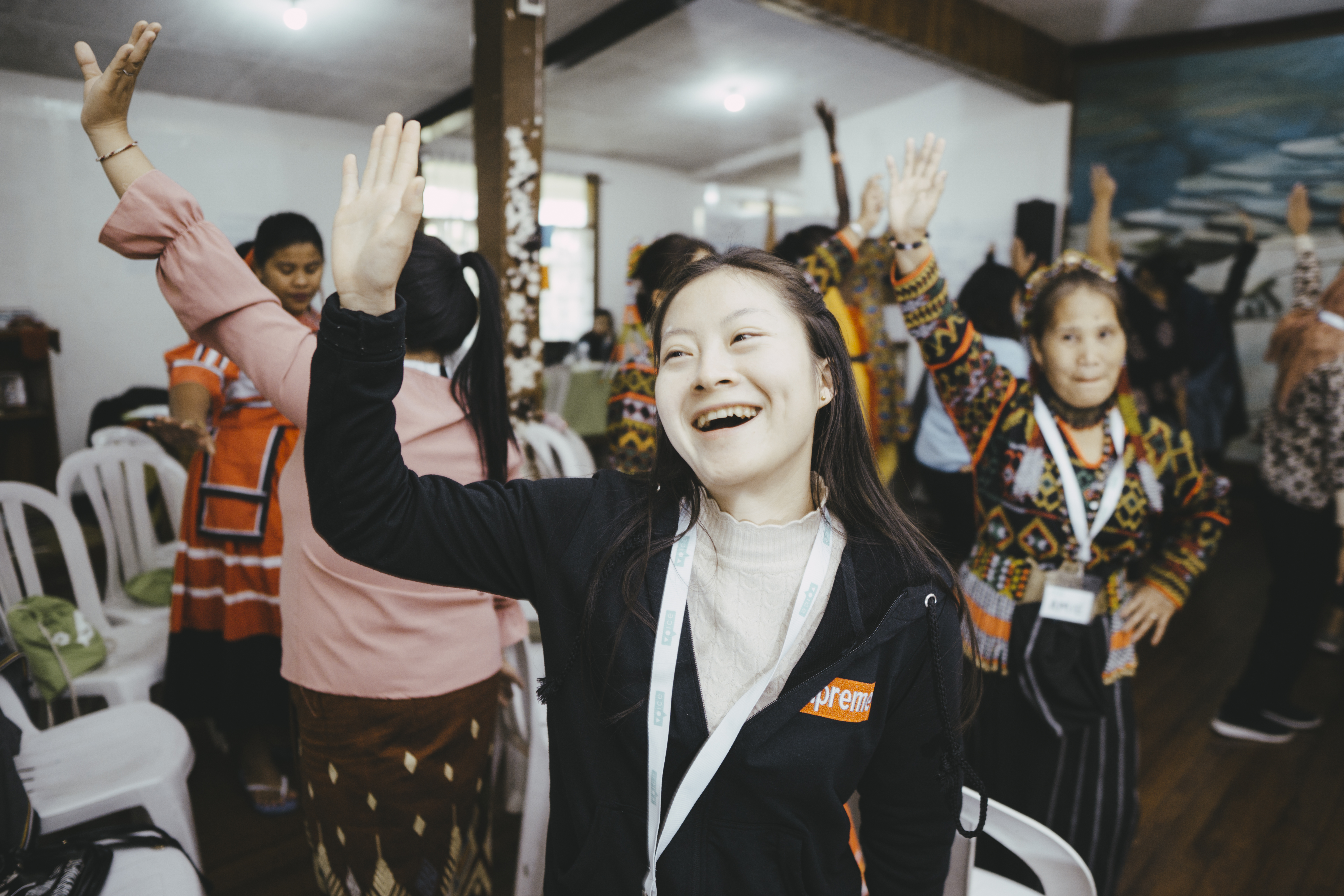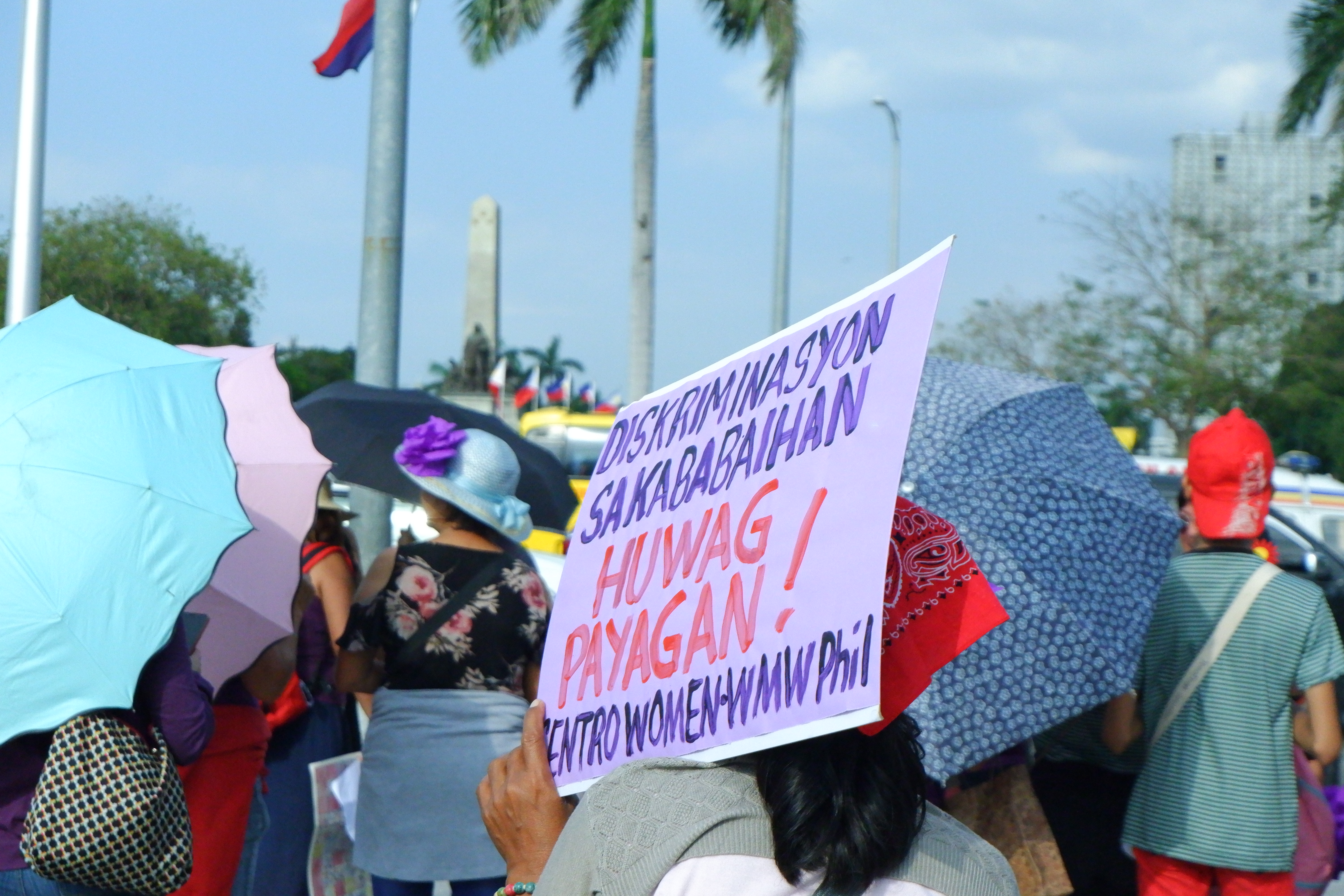Autonomy in the Phillipines
Autonomy in the Philippines
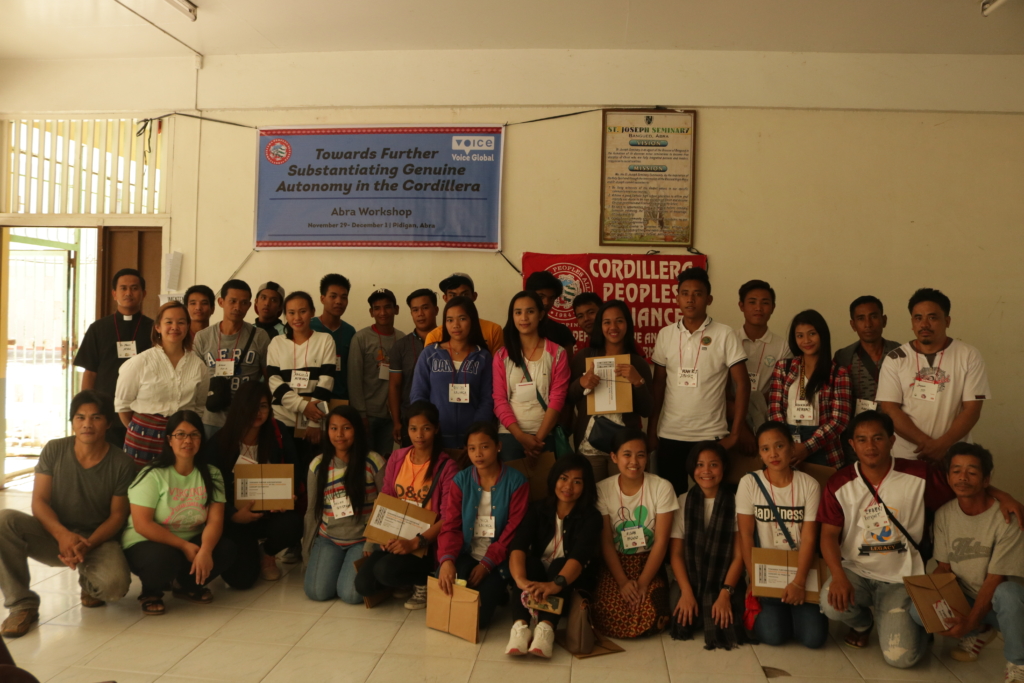
By Abigail Anongos, Cordillera People’s Alliance, Philippines
After several months of actively working towards realising the dreams of Indigenous Peoples, the Cordillera People’s Alliance or CPA’s movement is in progress. Since November 2018, with a Voice Innovate and Learn grant, successful workshops have been conducted in four provinces of the Cordillera region of the Philippines, and preparations are currently underway for the next runs.
These workshops on genuine regional autonomy were carried out by CPA in four provinces in the Cordillera region, Philippines.
The workshops delved on CPA’s framework on genuine regional autonomy to capacitate the participants in analysing past and current efforts by the governmentin creating an autonomous region through several organic laws and house bills. It also included the discourse on federalism and charter change, which the Philippine government is currently pushing for.

Participants at the Ifaguo Workshop who came from Ayangan, Tuali and Kalanguya indigenous groups, from the following sectors: farmers, women, elders, some from the church and youth.
Participants at the Apayao workshop who came from Isnag and Kankanaey from the following sectors: teachers, farmers, church leaders, local government units, people’sorganisations , women and youth
The target stakeholders are indigenous peoples across different sectors who actively participated in the workshops to discuss the pertinent issues of Cordillera autonomy, federalism and charter change, considering the unfolding electoral climate in the Philippines.
The key points raised during the discussions on the matter of further substantiating autonomy in the Cordillera included the following:
Revitalising and strengthening the role of Cordillera elders in dealing with the development aggression in the Cordillera. Specifically, the entry of destructive projects such as large mining and dams in ancestral lands of the Igorot indigenous peoples.
Inclusion of women’s rights to decision-making in economic and social development of a community. This is in view of their limited role in decision-making structures and processes in indigenous socio-political systems and the current situation of small-scale mining in the Cordillera which is banned by the Department of Environment and Natural Resources (DENR). Traditional small-scale mining is a major livelihood of many Cordillera communities in which indigenous women have a specific role.
Protection of indigenous peoples’ human rights as an integral component of self-determination of Cordillera indigenous peoples. Situations faced by indigenous human rights defenders the Cordillera People’s Alliance (CPA) include: criminalisation of dissent, filing of trumped-up charges, militarisation of communities and forced evacuation, and extrajudicial killings, among others.
Integral role of indigenous youth and teachers including advocates on Indigenous People’s Education to address the discrimination of Igorots, the collective name for the different ethnic groups in the Cordilleras.
Strengthening and promoting traditional knowledge, customary law and positive cultural values of indigenous peoples as self-governance in the communities and as practiced prior to colonisation.
Without corresponding and having substantial changes at the national level, genuine regional autonomy cannot be realised.
On federalism and charter change, the project enabled for discussions to be given on the critique of CPA. Participants expressed that so far, they have only heard the standpoint of government agencies and certain groups advocating their own brand of federalism without discussing its relation to charter change. To complement the workshop outcomes, CPA also consulted their member organisations of indigenous elders and peasants on their views on how Cordillera autonomy can be further substantiated. CPA also conducted similar consultations with a party list legislator and teachers.

